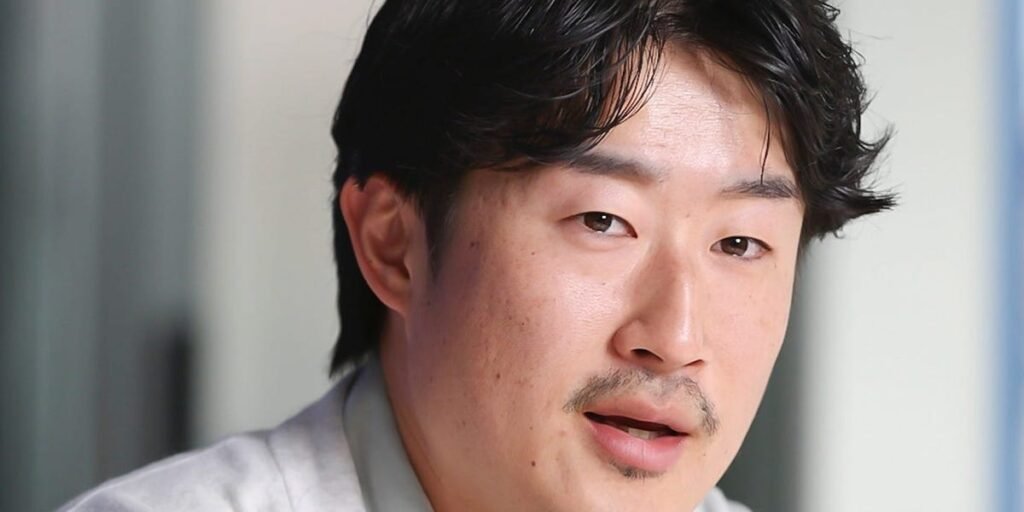This as-told-to essay is based on a conversation with Shun Sagara, a venture capitalist who moved from Tokyo to Bengaluru with his family in 2023. It has been edited for length and clarity.
I grew up in Japan and began my career at an enterprise software company in Tokyo. I spent five years at the company in various sales roles before I left in 2018. The following year, I joined my current venture capital firm, Genesia Ventures, and worked as an investment manager.
In my second year at the firm, there was serious interest in international expansion. We had a presence in Southeast Asia, and there was a growing consensus that India was our next logical destination. It aligned perfectly with my ambition to work in a fast-paced market, and I was keen to make a move.
My move to India wasn’t driven by a fascination with curry or Bollywood or anything like that. I always felt like India and Japan shine on the sidelines but don’t claim the center stage the way China or the US do. The trigger moment for me was when a Japanese founder told me I was the only VC among 20 to 30 meetings he had taken who truly understood enterprise businesses. It was flattering but rang alarm bells — if there was no competition around me, then maybe I was playing in the wrong league. Moving to India, where startups are not just building products, but are building the infrastructure of a rising economic power, felt like the next best step for me.
Moving with family wasn’t an easy decision. My wife was a flight attendant for Japanese Airlines and had been exposed to New Delhi, the capital, before — she didn’t like the air quality, the spicy food, and how it wasn’t safe for young single women. I had to convince her that Bengaluru was different from Delhi. Once she was on board, we moved to Bengaluru in the summer of 2023 so I could launch an India subsidiary for my VC firm.
Being a VC in India
I’m the company’s only employee in the country, and I’m tasked with making India investments for our Japan-based fund. Our average first check size is around $500,000, and we top it up with $1 million to $1.5 million investments.
My investment thesis is based on these three qualities rather than specific sectors: founders who understand the Indian context well; areas such as pharmaceuticals or precision manufacturing where Indian companies can become global market leaders; and areas where there is opportunity for India-Japan collaborations, like elder care or workforce shortage problems. Since launching our India office, I have invested in five companies.
There are big differences in how business is done. For example, Japanese culture is built around risk mitigation, while the Indian startup ecosystem is not. In Japan, our startup pitch decks have 40-50 slides and address every single objection a VC may have. In India, founders walk into meetings with a napkin sketch and unshakeable conviction. Both approaches work from my experience.
Another key difference is India’s “jugaad” mentality, which is all about improvising with what you have, versus the Japanese “kaizen,” which involves continuous optimization of existing processes. I’ve found that combining these mindsets in India-Japanese deals can produce extraordinary results.
Raising a family in India
Coming from Japan, cleanliness is one of the biggest differences about living in India, and it is also one thing my wife and children find challenging.
But when it comes to raising children, India, and in particular Bengaluru, is one of the best cities in the world. People are warm and kind toward foreigners, and most people love children. My two little kids — a five-year-old daughter and a three-year-old son — are well-treated by local people. There are also great international schools in the city, and raising children has been a great experience for my wife and me.
What surprised me most was the grassroots popularity of sports. I always knew that India was a cricket-loving country, but I was shocked to see how popular soccer is getting in the country. Two years into living here, I have a weekly soccer game with five friends. While I know lots of Japanese expats and other foreigners, 90% of my circle is local Indians.
The people I work with are collaborative and open-minded, and they have always been helpful when I encounter daily operational challenges.
My commitment to living in India is long term, and I don’t plan to come back to Japan in the next five years at least. Even if I move back home after 10 years, I want to continue to be exposed to India and Indian businesses. Bridging India and Japan is the goal of my entire life and career.
Are you a foreign founder or VC who moved to India in the last few years? Please reach out at sgoel@businessinsider.com.
Read the full article here



